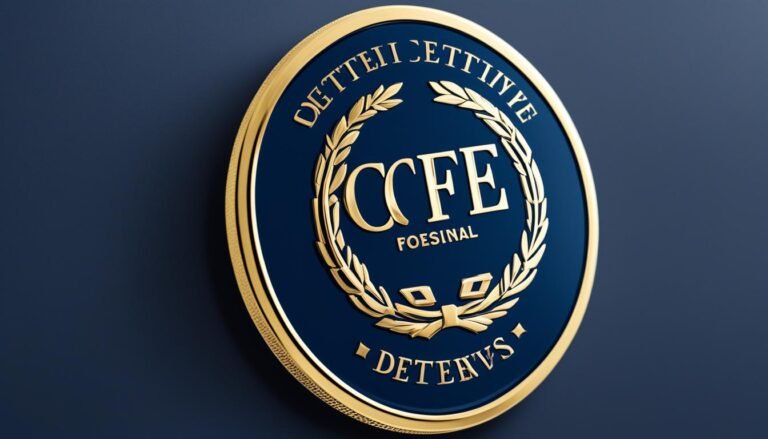Top Master of Science in Financial Economics and Policy (MSFEP) Degrees
The need for experts in financial economics and policy is growing fast. The global economy is more complex than ever. So, organizations and governments need people who understand finance, economics, and policy well. Getting a Master of Science in Financial Economics and Policy (MSFEP) can give you an edge in this field.
MSFEP programs teach about financial markets, economic analysis, policy-making, and managing risks. Graduates can find jobs in finance, consulting, government, and academics. If you want to grow in your current job or start a new career, an MSFEP degree can help you reach new opportunities.
Key Takeaways:
- Master of Science in Financial Economics and Policy (MSFEP) degrees are in high demand.
- These programs provide in-depth knowledge and skills in finance, economics, and policy.
- MSFEP graduates can pursue rewarding careers in finance, consulting, government, and academia.
- Top-ranked MSFEP programs offer rigorous curriculum, renowned faculty, and outstanding research opportunities.
- Financial economics and policy professionals play a vital role in shaping economic systems and markets.
Choosing the Right MSFEP Program
When looking into master’s programs in financial economics and policy (MSFEP), doing your homework is key. It’s wise to compare various aspects. These include the program’s reputation, the available courses, the faculty’s skills, internship networking chances, and help with career building.
Opting for a well-ranked MSFEP program often means getting an education from famous universities. This can boost your career chances after you graduate.
It’s essential to check the courses an MSFEP program offers. Make sure the program covers the basics of financial economics, policy analysis, and advanced math. Look for specialties or elective courses that match your interests in the field.
The teachers in an MSFEP program are very important. They can influence your learning and career growth a lot. Look into the faculty’s background to see if they bring a lot of real-world experience to the table.
Good MSFEP programs should offer chances to work or connect with industry leaders. Such opportunities boost your resume and help you meet potential employers.
Career support from the school is also key. This includes help with resumes, job interviews, and finding work after you graduate. Strong support in these areas can make your school experience even better.
By weighing all these factors and doing in-depth research, you can pick the ideal MSFEP program. Spend time looking at various programs, attending info sessions, and talking to students and alumni. This will help you make a choice that can lead to a successful career in financial economics and policy.
MSFEP Curriculum and Specializations
The Master of Science in Financial Economics and Policy (MSFEP) programs have a wide-ranging curriculum. They cover essential areas like financial economics, policy analysis, and econometrics. This prepares students for jobs in both finance and policy.
In these programs, students learn about financial markets. They study how to make good investments and manage risk. They also explore corporate finance and economic analysis. This knowledge helps them understand and shape public policy.
Specializing in a certain area sets students apart as experts. Popular specializations include investment management, risk analysis, corporate finance, and public policy. Each offers unique skills for different career paths.
Choosing a specialization lets students focus on their interests. It makes them more competitive in the job market. They develop specialized skills that match their career goals.
Students learn through lectures, seminars, and projects. This mix of teaching methods helps them understand theories and apply them to real situations.
Sample Course Structure for MSFEP Program:
| Year | Course | Description |
|---|---|---|
| First Year | Financial Economics | An overview of financial markets, instruments, and investment strategies. |
| First Year | Microeconomic Analysis | Advanced study of microeconomic theory and its applications in policy analysis. |
| First Year | Econometrics | Application of statistical methods to economic data analysis and forecasting. |
| Second Year | Specialization Elective | Coursework tailored to the chosen specialization, such as investment management or risk analysis. |
| Second Year | Financial Policy | Examining the role of government in financial markets and the formulation of financial policies. |
| Second Year | Research Project | Conducting independent research on a selected topic under the guidance of faculty. |
The program has a team of great faculty. They are both scholars and professionals. Students learn from the best, gaining from the faculty members’ own research and experiences.
The combination of a strong curriculum and various specializations makes the MSFEP program a perfect step into financial and policy careers.
Career Opportunities for MSFEP Graduates
Graduating from an MSFEP program opens many doors in finance, economics, and policy fields. Organizations like financial firms, banks, consulting companies, and government bodies look for MSFEP grads. They also have opportunities in think tanks and educational institutions.
MSFEP graduates are in high demand for their skills and knowledge. They can choose from various career paths that match their interests and abilities.
- Financial Analyst: Look at financial data and suggest investments to clients or companies.
- Policy Analyst: Study policies, make recommendations to solve economic issues, and stimulate growth.
- Risk Manager: Find and lessen financial threats, create strategies to manage risk, and ensure following rules.
- Economist: Study economic changes, predict market situations, and offer advice for decision-making.
- Consultant: Guide clients on finance strategies, risk control, and law compliance.
- Portfolio Manager: Handle investment plans, evaluate market conditions, and make important decisions.
- Research Analyst: Analyze economic data, create reports to help in decision-making.
These examples are just the start. The job market for MSFEP graduates is broad and constantly growing. There are many opportunities for both personal and professional development.
Below is a table showing different job sectors for MSFEP graduates:
| Industries | Employment Opportunities |
|---|---|
| Financial Institutions | Financial Analyst, Risk Manager |
| Investment Banks | Financial Analyst, Portfolio Manager |
| Consulting Firms | Consultant, Policy Analyst |
| Government Agencies | Policy Analyst, Economist |
| Central Banks | Economist, Risk Manager |
| Think Tanks | Research Analyst, Policy Analyst |
| Academic Institutions | Professor, Researcher |
This table highlights the various industries that seek MSFEP graduates. There are many places where they can use their skills to excel and have a significant impact.
Testimonial:
“Pursuing an MSFEP degree has opened doors to numerous career opportunities for me. The specialized knowledge and skills I gained throughout the program have enabled me to secure a position as a Financial Analyst in a leading investment bank. I am grateful for the career prospects that an MSFEP degree offers.” – John Smith, MSFEP Graduate
Understanding the many paths MSFEP graduates can take gives insight into the importance of their work. This sets the stage for exploring the real-world applications of financial economics and policy in the following section.
Financial Economics and Policy in Practice
Financial economics and policy are key in the world’s economic systems and markets. They help these systems grow and stay stable. People in this area look at economic signs, evaluate risks, and suggest policies that could change financial markets and the economy at large.
They employ a mix of economic theories, models, and financial data to support their decisions. By studying trends and patterns in the economy, they help create effective policies. These policies aim to boost the economy, lower risks, and make the financial world more secure.
“Financial economics and policy professionals play a vital role in shaping the economic landscape, guiding policymakers in their decision-making processes, and ultimately influencing the overall health of financial markets and the economy.”
Policy Development and Evaluation
Experts in financial economics and policy work on policies that directly touch financial markets and those involved in them. They use economic know-how and high-level tools to judge policy effects and outcomes.
They assess policy results to lay the groundwork for regulations that keep the financial sector in good shape. By looking deeply into policy ideas, they aim to ensure these suggestions are solid.
Economic Modeling and Forecasting
These experts assist policymakers by creating complex economic models. They predict future outcomes of policy changes using big sets of data and simulations.
They help policymakers by showing them the effects of their decisions. This allows for better choices that give the best results. Through these models and forecasts, they shine a light on how policies might influence the economy.
Risk Assessment and Management
Assessing and controlling financial risks is another vital task for these professionals. They look at the numbers and frameworks to spot risks and offer ways to handle them.
They keep a close eye on the market, using past data to understand current threats. By working with key players and policymakers, they create strategies that keep the financial world safe.
Industry Research and Analysis
Besides policy work, these experts also study the financial industry. This research offers vital information for policymakers. It includes market studies and trend evaluations.
This kind of deep dive helps policymakers make informed choices. It guides decisions on things like market fairness and consumer protection. These professionals also help advance their field through academic work, sharing new research widely.
Financial economics and policy experts are central to crafting our economic future. They analyze key economic data, evaluate risks, and suggest policy directions. Their work is essential in keeping the economy healthy and ensuring financial markets are stable.
Salary and Earnings Potential
MSFEP program graduates often have high pay and great earning possibilities. Their salary varies based on their job, where they work, and their experience. Typically, these professionals make between $80,000 and $120,000 yearly. But as they grow in their careers, they can earn even more. Specializing could lead to earning over $100,000 a year.
Jobs in financial economics and policy pay well, showing how much they are needed. Roles include financial analysts, policy analysts, economists, and more. These professionals provide important advice and leadership to companies.
Top MSFEP Programs in the United States
The United States has several top programs for a Master of Science in Financial Economics and Policy (MSFEP) degree. They are known for a challenging academic path, great research chances, and access to esteemed faculty. Graduates often find strong career paths in finance, consulting, government, or academia with network gained from these programs.
The following are some of the best MSFEP programs in the U.S.:
- Harvard University
- Massachusetts Institute of Technology (MIT)
- Stanford University
- Columbia University
- University of Chicago
These schools have a reputation for their high standards and focus on critical thinking. They cover key subjects in financial economics, policy analysis, and more. Students can also dig deep into areas like investment management or public policy.
Moreover, these schools boast faculty who are leaders in the finance world. They guide students with important insights. The schools provide top-notch research settings. This helps students become part of new research initiatives in financial economics and policy.
Choosing one of these top MSFEP programs can lead to significant career benefits. The connections and reputation of these universities are invaluable. This paves the way for jobs in top financial firms, consulting, government, and academia.
Institution Highlights
- Harvard University: Renowned for its distinguished faculty and research-intensive environment.
- MIT: Known for its strong emphasis on quantitative analysis and cutting-edge research.
- Stanford University: Offers a multidisciplinary approach to financial economics and policy.
- Columbia University: Located in the heart of New York City, providing access to industry leaders and opportunities.
- University of Chicago: Known for its rigorous curriculum and focus on economic theory and policy analysis.
These MSFEP programs rank high, attracting talented students worldwide. They provide the knowledge, skills, and network needed for success in financial economics and policy.
Admission Requirements for MSFEP Programs
Applying to a Master of Science in Financial Economics and Policy (MSFEP) program has its set of rules. It’s about showing you have what it takes to succeed in the course. While the details can differ, there are some key things every applicant should have.
Core Admission Requirements
- A Bachelor’s degree is a must. It should be from a well-known school. Ideally, it’s in a related field like economics or finance.
- Candidates need to be good with numbers. You might have to show your math and analytical skills with test scores. GRE or GMAT are common.
- Every school you’ve attended in the past needs to send your transcripts. These show your academic history and what courses you’ve taken.
- Get some people who know you well to write letters of recommendation. They can be from teachers, bosses, or others who understand your skills.
- Write a statement of purpose. This is your chance to say why you want to study MSFEP. It should reflect your goals and interest in the course.
- Send in your resume too. It should highlight your educational background, work experience, and anything else that shows what you can bring to the program.
Additional Requirements
Some MSFEP programs have extra hoops to jump through. Additional requirements vary by school. They might include:
- Some candidates need to sit for an interview. This is to see if the program fits them well and to answer any questions about their application.
- International students might need to prove they’re fluent in English. Tests like TOEFL or IELTS can show your language skills.
- There could be certain courses you have to take beforehand. This is to make sure everyone starts the program on the same page.
Before applying, make sure you know all the details for the MSFEP programs you’re eyeing. Look on their websites and read their brochures. You’ll find all the information on how to apply, deadlines, and what documents you need to send.
Scholarships and Financial Aid for MSFEP Programs
Many MSFEP programs offer some form of financial aid. This aid helps offset the costs of tuition and more. Opportunities may be based on merit, need, or both. It’s wise for students to look into what’s available. They should also reach out to school financial aid offices for detailed info on how to apply.
MSFEP scholarships are a great way to support your studies. They lessen the money stress and make education more within reach. They’re often given for good grades, leadership skills, or other merits. Some are for everyone, while others are more specific.
“Getting a scholarship for my MSFEP was life-changing. It stopped my financial stress and let me focus on school. I could take part in everything my school offers without worrying.”
– Amanda Thompson, MSFEP Scholarship Recipient
Grants and work-study can also help with school bills. Grants don’t need to be paid back and are for students with financial needs. Work-study lets students work part-time on campus. This helps them learn on the job and pay for school.
When applying for aid, look closely at what’s needed. Deadlines and extra documents like essays or letters are common. Be ready to meet all requirements on time.
Recommended Scholarships for MSFEP Programs
Consider these famous scholarships for your MSFEP studies:
- [Scholarship Name]: This is for top students in MSFEP. It pays a big part of tuition and helps with living costs.
- [Scholarship Name]: It gives help to students from low-income families. You might get it based on need, academics, and achievements.
- [Scholarship Name]: A merit-based award for excellent researchers in financial economics and policy.
These are just a start. To find more, check scholarship sites or talk to a financial aid counselor. Organizations in your field might also have scholarships.
By exploring these options, you can ease your MSFEP costs. Dedicating time to apply for scholarships can make a big difference in achieving your educational goals.
Next, we’ll wrap up our look at MSFEP programs. We’ll sum up why they’re great for your career and how to make the most of your studies.
Conclusion
Earning a Master of Science in Financial Economics and Policy (MSFEP) can be a rewarding path for those who love finance, economics, and policy. These programs offer intense education and specialized knowledge, giving students what they need to stand out in the challenging area of financial economics and policy.
Choosing the right MSFEP program can mean opening doors to many job options. Those who finish these programs are ready for jobs like financial analysts, policy analysts, risk managers, and more. The need for their skills is growing, making it a great time to get into this field.
MSFEP programs provide a deep curriculum. They include key topics in financial economics, policy analysis, and using data. Students can also pick areas to focus on, like managing investments or studying corporate finance.
This mix of study and hands-on learning gets students ready to help in finance, consulting, and other fields. Going for a Master of Science degree in Financial Economics and Policy sets professionals up for a solid, meaningful career. They get a strong base in finance, economics, and policy, as well as chances to meet and learn from industry experts.








